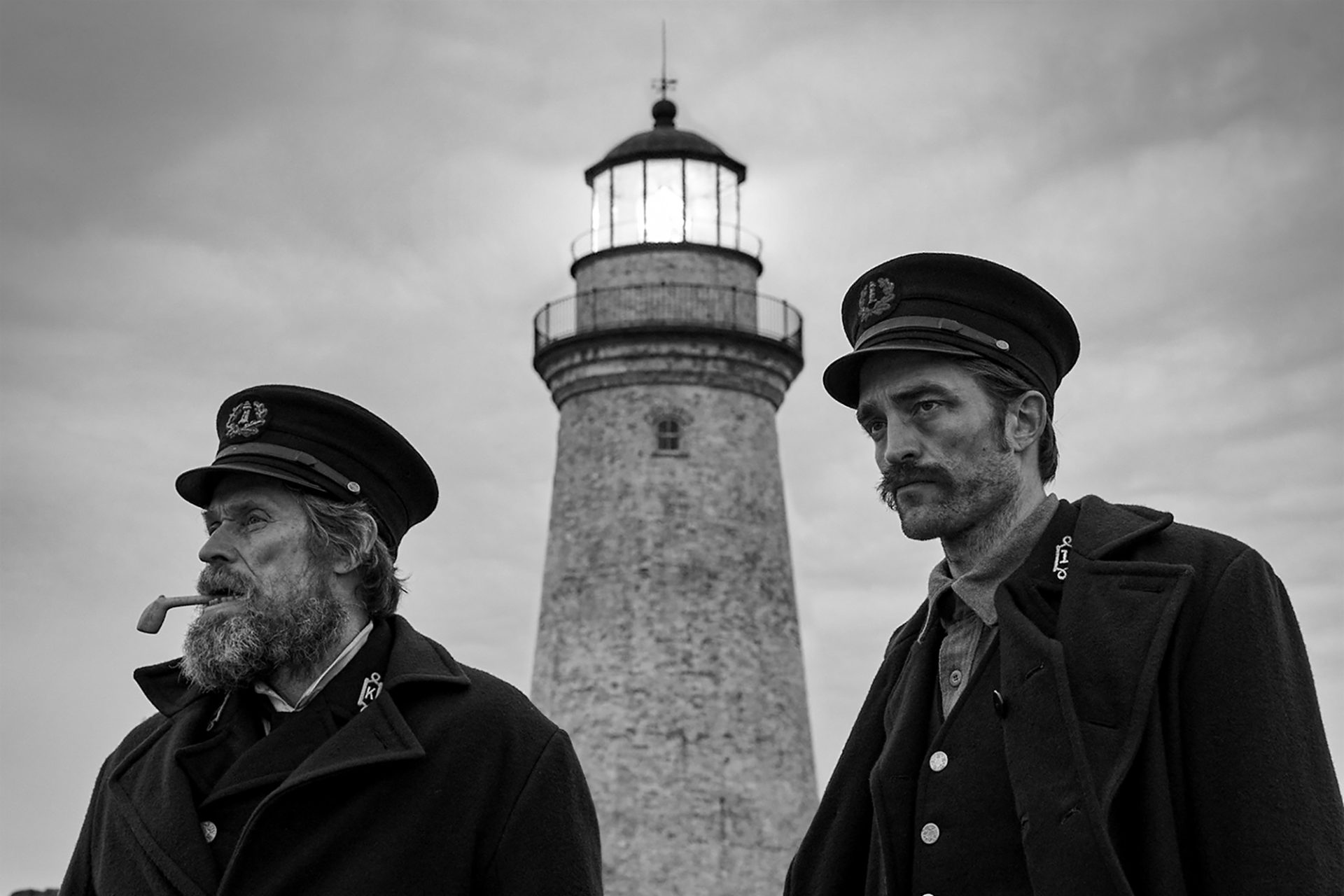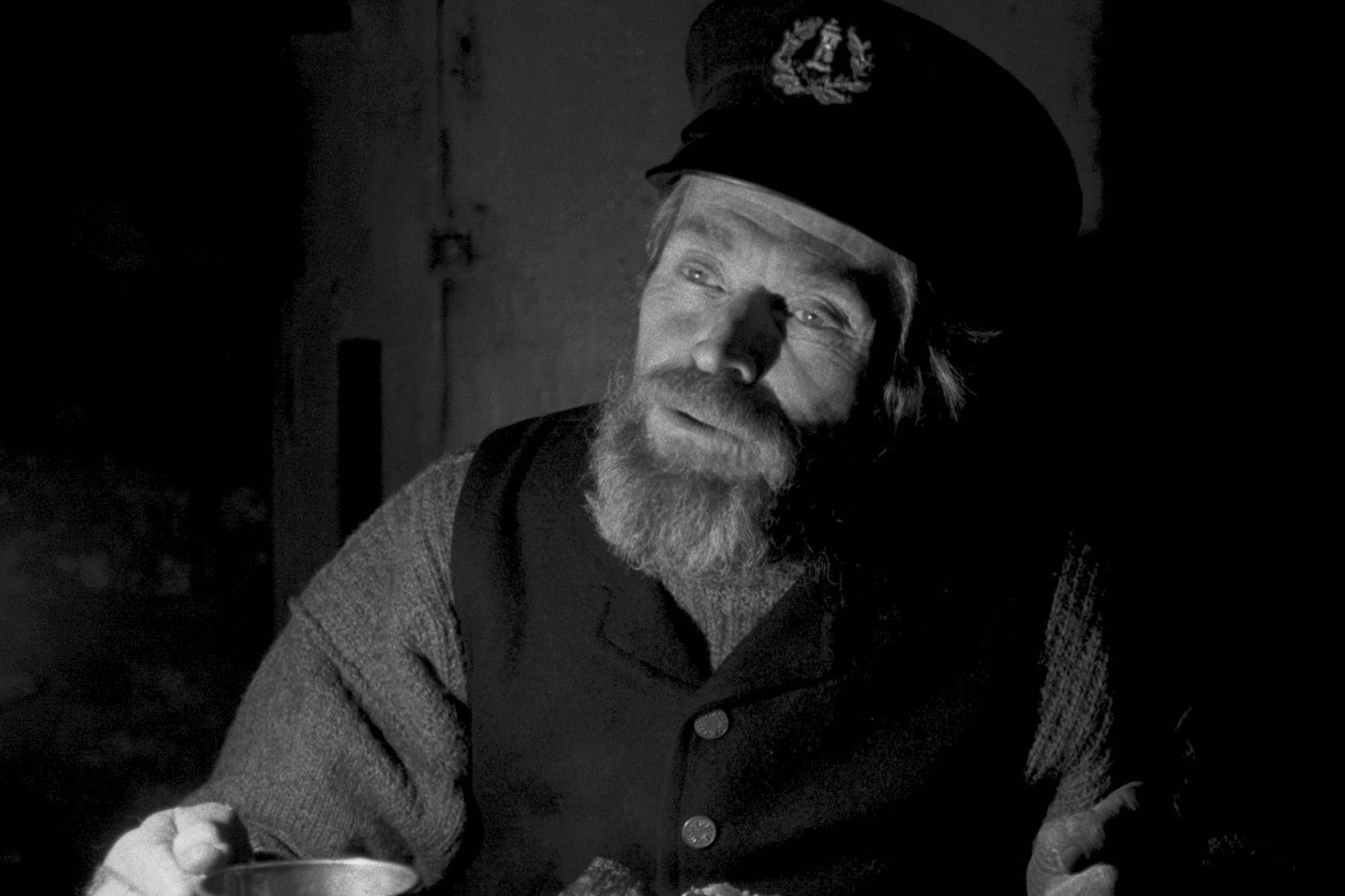On a New York afternoon in early 2016, Willem Dafoe wanders into a movie theatre, ponders over the posters of what’s playing and just picks one. He emerges two hours later with a thought that still, four years on, hasn’t left him: “There’s a filmmaker here.”
That movie was Robert Eggers’ disturbing cult-horror debut The Witch; a Sundance break-out that achieved the near impossible, being both both a critical darling and a box office hit created on a shoestring budget. Today, Willem is hunched forward in his chair, relaying that first encounter with the film as if he’d stumbled across a map that pointed perfectly towards a goldmine. Even now, he’s still revelling in the riches of that discovery. “I basically said to Robert, ‘If you have something [for me] to do, I’d love to be a part of your work’, as you do when you really think someone can make something,” the actor says, the way he hisses his ‘s’ sounds far less threatening in person. A few projects passed his way before the director “sent me a script and said: ‘Rob Pattinson. You. We’ll build the lighthouse and shoot in some horribly inhospitable place’, so I said yes.”
The project was The Lighthouse: a shuddering, black-and-white psycho-horror that sees its director return to the New England setting of his debut. Only the focus is no longer on a family torn to shreds by an occult presence, but a far more malevolent array of forces. Inside a coastal watchtower isolated from the outside world, a lighthouse keeper and his newly entrusted assistant’s stirring minds are tossed and turned by hypnotising mermaids and sharp-beaked seagulls. Half horror, half comedy, it’s a film about manhood and madness. “Two guys in a lighthouse that don’t get picked up — bad things happen” is how he explains it. “Or — what happens when two men get trapped in a giant phallus?” he laughs. “That’s what Robert Eggers says.”

Shot on location in a pretty much deserted spot off Nova Scotia, the film’s production provided the perfect recipe for a creative disaster: hideous weather conditions and isolation would surely lead to conflicts between castmates and a morose mood on set, right? Quite the contrary. These are conditions Willem is all-too familiar with. Over the course of his four-decade career, he’s worked with some of the most notorious directors on some of the most arduous projects in modern cinematic history. He’s been nailed to the cross in Martin Scorsese’s The Last Temptation of Christ. Arthouse provocateur Lars von Trier has cast him first as a brutally tortured patriarch in his 2009 film Antichrist, and later as the dark superior to a sex-addicted debt collector in Nymphomaniac.
But was this the toughest shoot he’s done? “It’s funny when you say tough, because I was so happy working on this,” he says. “I liked the people I was working with and thought it was an interesting project and I had things to do. I felt engaged. It becomes an experience; you learn things. What you learn I can’t tell you exactly, but you definitely are changed by it. That’s what I have a nose for.” Despite the shitty weather, most days he’d stand behind the camera and watch Rob’s scenes unfold too. “I really don’t make distinction between their scene, my scene, our scene — it’s all the same,” he insists, but there were a few exceptions. “If you’re gonna be working for eight hours you’re not going to stand out there and watch Rob haul coal around!” he laughs. “You’ve got to stay healthy!”
Willem’s keen, wide-reaching eye for good cinema has led him to cultivate one of the most diverse back catalogues of any working actor today. For every Wes Anderson feature (he recently wrapped The French Dispatch with Timothée Chalamet), he’ll appear as the voice of a brooding angelfish in a Pixar movie (2003’s Finding Nemo). He can play villains too, whether they’re the kind favoured by David Lynch or the Marvel Universe. It’s been a longstanding aspect of his career — flitting between the two — but he picks wisely.
“What’s a studio film? What’s an independent film?” he asks rhetorically, when I ask if that shift is easier in 2020. The boom of streaming services has changed things. “It’s all kind of fuzzy now, which in itself isn’t bad because it generates a lot of work. But the discourse is watered down now, so no one gets their feet put to the fire. That’s the phenomenon of the internet: there’s great freedom because you can go many places, but the truth is everybody’s going different places to validate who they are, and we aren’t dealing with each other. The landscape is flatter, so the differences are important and we don’t feel them so much. That may feel like freedom, but it also restricts.” His answers often drag on into territories that feel as fuzzy as the landscape he’s discussing. It’s not that he seems indecisive; rather, Willem is the kind of person to contemplate both sides of an argument. He’s fair, well-judged. His answers are never flagrant nor littered with hyperbole.
It makes it all the more impressive that The Lighthouse, in all of its deranged glory, came from such a mild-mannered actor. Willem’s character is the instigator of much of its hysteria; a bearded old bloke who pushes the buttons of his younger companion. It’s hardy and violently masculine, and as grating as it is alluring. “With the arc of the story here, you get some sense that this is a destructive path,” he says of his own character’s arc. “One of the beautiful things about my character is that you don’t know what’s bluster and what’s fact, so the whole kind of ‘loquacious old sailor reminiscing’ allows you to do that without feeling like it’s ever in your face. These guys are taking each other apart, taking away the mortar from the wall of their personality or fucking with their narrative. That’s part of it.”
Willem Dafoe is in his sixties and shows little sign of slowing down. Before we part ways, I ask how often he encounters challenges, and whether or not they’re necessary to make work he’s proud of. He thinks for a second, before he slowly answers: “Yes. [Being challenged] taps into a part of you that’s greater than your living personality, and there’s no way you’re going to get there if you’re too relaxed and in control.” He likes to ponder the alternative too. “But on the other hand, when you’re relaxed it works the other way. You’re receptive, and you can process things that you might not normally receive if you’re being too striving.
“For me, personally, it’s like how I feel about temperature: I like being hot! You lose yourself in the respect that you go beyond what you can control. To me, performing is always somewhere between control and abandon,” he says, raising his shoulders into a shrug. “It’s just about finding that sweet spot.”
The Lighthouse is in UK cinemas 31 January
